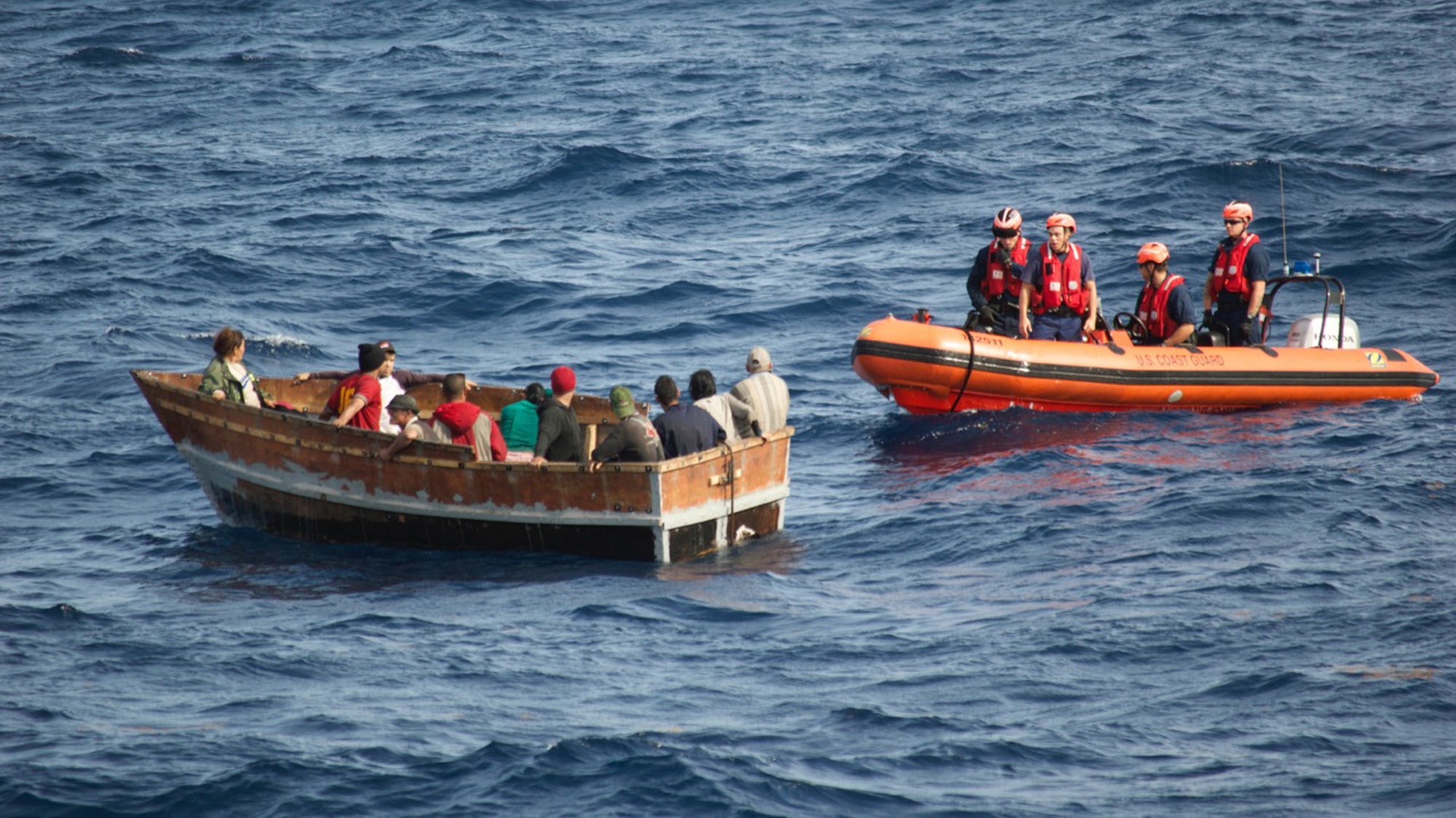End of ‘wet foot, dry foot’ policy may trip up Cubans on way to U.S.
Listen
In 2014, crew members of the U.S. Coast Guard Cutter Knight Island approach a boat with 12 Cuban migrants southwest of Key West, Florida. (AP Photo/U.S. Coast Guard)
After risking a dangerous sea voyage or flying to Latin America and making the trek to the U.S. border, 328 Cubans settled in Pennsylvania last year.
On Thursday, President Obama announced the U.S. will no longer extend automatic legal status to Cubans who arrive that way, ending more than 20 years of a policy known as “wet foot, dry foot.”
Kicking in at midnight Thursday, the change caught many Cubans off guard.
“I was shocked,” said Alain Martinez, who arrived in the U.S. and settled in with Lancaster County’s small Cuban community a couple of years ago. Martinez immigrated through a different program, called the Cuban Family Reunification Parole Program, but said his thoughts are with Cubans already en route to the U.S. who don’t know they won’t be welcomed.
“If they are rafters, it can take up to six or seven days to get here,” he said. “So they don’t even know” the policy has changed.
The Cuban Adjustment Act of 1966 allows any Cuban who comes to the U.S. and lives here for a year to apply for permanent residency. Under the “wet foot, dry foot” policy, Cubans who made it to U.S. soil without a visa would not be deported and were granted “parole” status to wait out that year.
Now, Cubans who reach the U.S. without legal status will have to apply for asylum and prove they were persecuted to be allowed to stay, according to Sheila Mastropietro, director of the Church World Service’s Lancaster refugee program.
“Some Cubans are like, ‘This is good. Cuba is losing all of its good, young working age people,'” she said of online chatter following the announcement.
Mastropietro said the policy change cuts off a rising tide of Cubans arriving in Pennsylvania following Obama’s announcement to “normalize” relations with Cuba, beginning in 2014.
The Church World Service resettles all of the Cubans in Pennsylvania who come in through immigration channels. (Martinez also works for the organization, as an employment specialist, but said his views are his own.)
Last year’s more than 300 arrivals tops the 142 who came in 2014, before “normalization” was announced. Mastropietro said community estimates put the number of Cubans in the Lancaster area at 2,000.
In a statement, White House officials said this policy change is the next step in fostering friendly relations with Cuba, so that the U.S. treats its arrivals as it does those from other Latin American countries. At the same time, the U.S. also eliminated a program to accept Cuban medical professions who defect.
Martinez, who is critical of the Cuban government, said he’s concerned the policy change will hurt people who flee and are returned to Cuba.
The Cuban government announced it would happily accept back without retribution any Cubans who left in the last four years, but Martinez said there could still consequences for defecting.
“Maybe it’s going to be harder for people to get a job or something.”
According to Human Rights Watch, Cuba still shames and sometimes jails people who speak out against the government, including more than 7,000 reported “arbitrary detentions” in 2016.
Hanging over Cubans is another big question — what will President-elect Donald Trump do? In November, Trump said he would “terminate” Obama’s new friendly relations with Cuba if it “didn’t make a better deal for the Cuban people, the Cuban/American people.”
WHYY is your source for fact-based, in-depth journalism and information. As a nonprofit organization, we rely on financial support from readers like you. Please give today.

